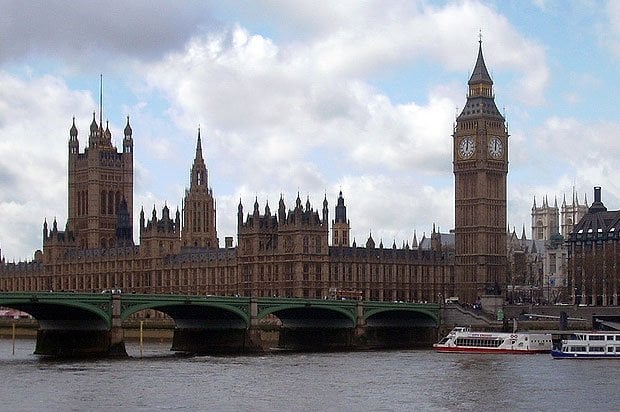How to contact your MP
They're not the officials in fusty suits you might think they are (well, not all of them at least). Sometimes, contacting your local MP can actually help, plus it’s your right as a UK citizen. So if there’s something bothering you it might be worth learning how to contact your MP and giving it a shot. Read on as we explain how it’s done and why you might want to do it.

Remember - they work for you.
The role of an MP
UK Members of Parliament (MPs) have three main roles:
- To discuss and vote on legislation that may become laws.
- To hold the Government to account for its actions.
- To represent and help their constituents. This means that as a constituent you have a right to contact your MP.
Most of the information below equally applies for MSPs in Scotland, and Northern Ireland, Welsh and London Assembly Members.
Why contact your MP?
There are two key ways in which your MP can help you directly. Firstly, they can help you with a personal issue, such as gaining support in funding a training course, or taking action on your comments about a local service.
Secondly, you can ask your MP to give their support to a particular campaign or issue that matters to you. This is known as ‘lobbying’ your MP. You can lobby your MP on anything from funding a local project, to influencing national or international campaigns.
How can I contact my MP?
You can contact your MP by letter or email. If you want to meet them in person, you can do so at a one-to-one meeting (called a ‘surgery’) – your MP will hold surgeries in your local area on a regular basis, and you can usually book them by contacting the MP’s office. The time it takes for each MP to respond to you will vary, but you can usually expect to hear something from them within three weeks.
If you’d like to gain an MP’s support as part of a national or international campaign, you can lobby any MP who’s likely to support your cause. However, on local or personal matters only your local MP will be able to help.
Personal matters
If you’re contacting an MP about a personal matter, and you have a reasonable case, they will almost certainly support you. They will usually write on your behalf to a relevant organisation to try and get positive action. Of course, you could try doing this yourself, but it’s likely that a letter from an MP will have a greater impact since they’re regarded as very influential people.
MPs can also refer your enquiry directly to the Government minister in charge of the relevant sector. For example, if you have a problem with your school or college, your MP can write directly to the Secretary of State for Education asking them to look into the matter. It’s worth remembering that even writing to the Secretary of State won’t necessarily guarantee a positive outcome, although it certainly will help.
Local issues
If you want to make a positive difference in your local area, your MP is likely to take an interest. If they offer their support, it’ll probably be very valuable in achieving your aims, and if necessary, they can raise the issue in Parliament and write directly to individual ministers about it.
MPs can also help to get the press involved – this will raise the profile of your campaign and help to garner more support. Getting media coverage also benefits the MP themselves, as it helps them to become more recognisable to local people and show themselves in a good light.
National or international issue
The response you receive is likely to depend on your MP’s personal views on the subject. If they disagree with you, they will send you a polite letter explaining why they disagree. If they support the campaign you can ask them to take action, such as signing an Early Day Motion (a type of parliamentary petition that MPs sign to show they support something), holding a debate about the issue in Parliament or writing to the relevant minister about it. They may also become involved in the wider campaign outside Parliament and help you to champion the cause with the general public.
If you find that your MP doesn’t agree with you, at least it might help you decide who to vote for in the next election.
“My MP didn’t help me”
If you have no luck with your MP, don’t despair – there are other routes you can go down.
- If the issue is local, your local councillors can help in much the same way an MP can.
- You can contact organisations whose work focuses on issues related to your cause.
- You can write to a local or national newspaper to make them aware of an issue or problem that you feel strongly about. They may run a story on it, which may help generate support.
- For personal issues, your local Citizens Advice Bureau will be able to help. They can advise you on a range of matters and will always be able to point you in the right direction.
Remember, if you’ve got any doubts about contacting your MP, it can still be worth contacting them. You’ve got nothing to lose – besides, if they do end up supporting your cause, the benefit could be massive.
Check out the rest of our democracy and politics resources here to learn more.
Next Steps
- Chat about this subject on our Discussion Boards.
By Ally Thomas
Updated on 15-Mar-2023
No featured article










